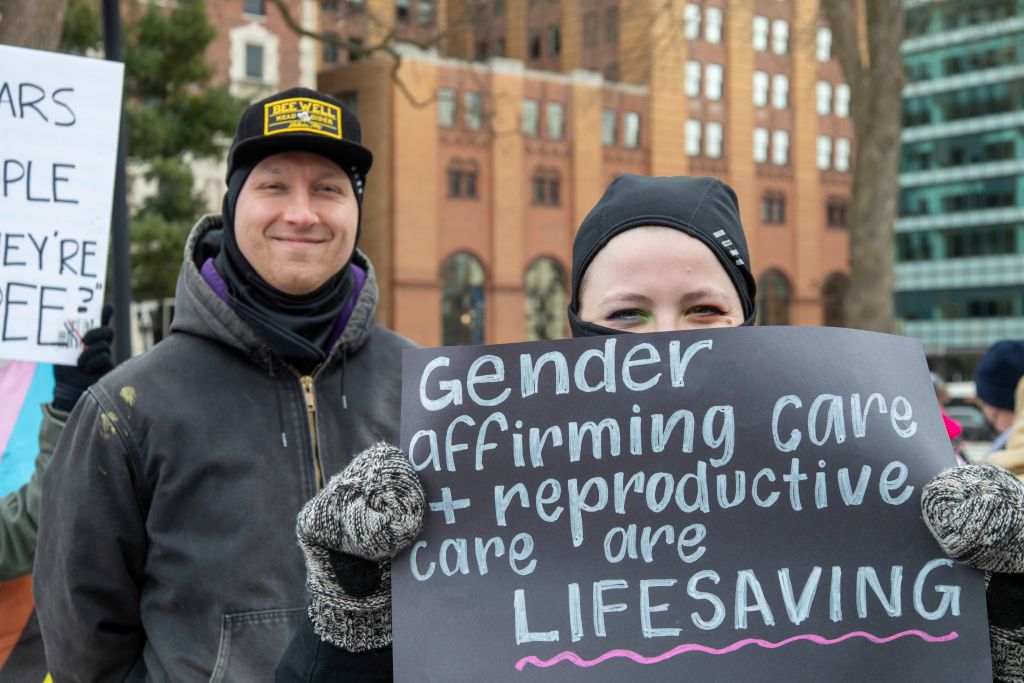
The Data We Don’t Collect Is Killing Women
April 24, 2025
Legalizing Conversion Therapy Sets a Dangerous Precedent for Medical Violence
April 24, 2025Want to stay current with Arthur’s writing? Sign up to get an email every time a new column comes out.
I wish you were here, dear,
I wish you were here.
I wish I knew no astronomy
when stars appear
Yes! I thought, as I read these lines from the Russian American poet Joseph Brodsky in a 1989 love poem, “A Song.” There’s something about the ineffable beauty of life that formal knowledge misses. So it seemed to the 25-year-old me, a bohemian musician and hopeless romantic. True, this anti-intellectual view was also flavored by no small quantity of sour grapes, after I’d spent an unsuccessful eight months at college and was barely making rent. I didn’t know it at the time, but I was in for a great deal of book-learning in my 30s, which ultimately led to a life as an academic. Although I became a happiness researcher, not an astronomer, I eventually came to repudiate my dalliance with Brodsky’s contention.
Still, given what I now do for work, I have to ask: How exactly does higher education affect happiness? Not because college costs a family, on average, nearly $40,000 a year (per student), which gives rise to a legitimate debate about whether people are getting their money’s worth; but because one of the most important questions they should weigh is “Will well-being be better or worse with this investment of time and money in additional schooling?” The answer to whether education pays a happiness dividend is not easy or clear-cut, but I can suggest a few rules to guide a potential student’s decision about whether to pursue further studies.
At first glance, the relationship between education and happiness appears very positive. Many scholars have looked at life satisfaction in countries all over the world, and found that educational attainment seems to push it up, in general, for both individuals and countries. Most studies ascribe this effect to the fact that formal education improves labor-market outcomes, which raises living standards, resulting in higher well-being.
A few researchers have looked at the nonfinancial benefits as well. One large study from Spain discovered that, in addition to better career outcomes, people get a happiness boost from the greater levels of self-confidence and self-esteem that higher education can provide. Another study found that at relatively high income levels, specialized education that fewer and fewer people attain (for example, a doctoral degree) becomes a “positional good,” meaning that simply possessing such attainment boosts social standing; this can translate into enhanced life satisfaction. In this respect, you might think of getting a Ph.D. as akin to buying a Ferrari.
When we look at happiness in other domains of life, things get a bit more complicated. On the one hand, people who have a college degree experience less satisfaction with their amount of leisure time than non-college-educated people do. On the other hand, higher education improves job satisfaction, as well as offering financial benefits—but only if one’s career expectations match actual employment opportunities (and this is especially the case in rich countries). The obvious explanation for this might be that some college majors actually do not prepare students for high-paying careers. Universities rarely talk about the reality that, whatever inherent value certain degree qualifications may have, entitlement to a top salary is not one of them—so some graduates get a nasty surprise.
Even worse for happiness is when higher education leads to indebtedness, which can lower well-being a great deal. Scholars have found that student loans are negatively correlated with psychological functioning, and that higher debt-to-income levels predict more symptoms of depression at midlife. This is consistent with the broad finding, which I discussed in this column, that in general, owing too much money is terrible for happiness.
Brodsky’s line about astronomy refers to the way knowledge derived from formal education can limit our perception of the sublime—and in that sense, interfere with pure happiness. But formal education is only one way of acquiring knowledge. Many behavioral scientists, myself included, believe that interest is a positive emotion that, when stimulated, makes learning inherently satisfying. The argument is that we are fitter as a species when we learn new things, and thus evolved to want to do so. But not everyone learns in the same way—and conventional, classroom-style education can be a mismatch for the way some people naturally acquire knowledge. For them, college is—in the words of one of my sons—complete torture. The point is that studying astronomy is not the only way to learn about and be interested in the stars.
Very few families, I imagine, sit around the kitchen table making a college decision purely on the basis of happiness. But in the United States, where the annual college dropout rate is about 33 percent, we would do well to take this variable into account. And the research provides a simple guide to making college a happier experience.
1. Follow the ikigai of college.
First, fortunate is the student who is extremely fascinated by the course of study in greatest demand by the job market. Most students, however, will need to find a balance between these two priorities: interest and reward. One method to help you strike that bargain is to use a simplified version of the Japanese concept of ikigai: in this case, the sweet spot of overlap between what interests you and what is professionally practical. Live in that sweet spot, and you will get as much positive emotion as possible from your work while minimizing the risk of job dissatisfaction. So do the work that universities don’t: Inform yourself about which majors lead to the best jobs and merge that list with the majors that most appeal to you.
2. Avoid debt as much as possible.
For the sake of happiness, avoid educational debt as much as possible. For people lucky in their family circumstances, student debt is not an issue, even if they attend expensive private universities. For others, however, more limited resources mean starting at community college and staying within a state system, or learning through one of the many affordable, virtual courses proliferating today. I was in the latter category when I finally went to college in my late 20s; I graduated one month before my 30th birthday. I had little money, was starting a family, and knew that a debt load would depress not just my well-being but theirs, too. I found an institution where I could pursue my degree through distance learning, and completed my studies within a budget of $10,000, including books. Plenty of people get their higher education this way, without incurring the happiness penalty of huge debt.
3. If you hate school, find a different path.
For decades, education researchers have debated whether different “learning styles” exist and what they are. Many subscribe to the idea that some people learn better through the written word, while others learn visually, and still others assimilate knowledge best by spoken-word methods. Although this theory—about text, image, speech modes—is still contested, there is little dispute that traditional college simply isn’t best for everyone, or even necessary. According to the trade-skill staffing company PRT, the United States has a critical shortage of tradespeople in fields such as plumbing and electrical contracting. I strongly suspect that one factor behind this shortage is an everyone-must-go-to-college mentality. The overt intentions may be admirable but can conceal an unconscious snobbery about class and profession that pushes into higher ed many talented, hardworking young people who would be much happier in occupations that do not require a college degree.
One last point is that the happiness gained by education might not be the same at every point in your life. Had I stayed in college as a teenager, I would certainly have majored in something of dubious job-market value and gone into significant debt in the process. A decade later, the education I got was both practical for my professional future, and inspirational, enabling me to understand myself and the world. At 18, I was not ready to study, and doing so gave me no joy. At 29, I thrilled to the glories of differential calculus and the mysteries solved by regression analysis.
I wasn’t only a quant-head—I also took courses in poetry. And it was then that Brodsky’s words took on a deeper meaning, opening up for me an apprehension of the fleeting beauty that knowledge brings all through life. Indeed, “A Song” closes with the following lines:
It’s evening, the sun is setting;
boys shout and gulls are crying.
What’s the point of forgetting
if it’s followed by dying?
#Education #Happier
Thanks to the Team @ The Atlantic Source link & Great Job Arthur C. Brooks





